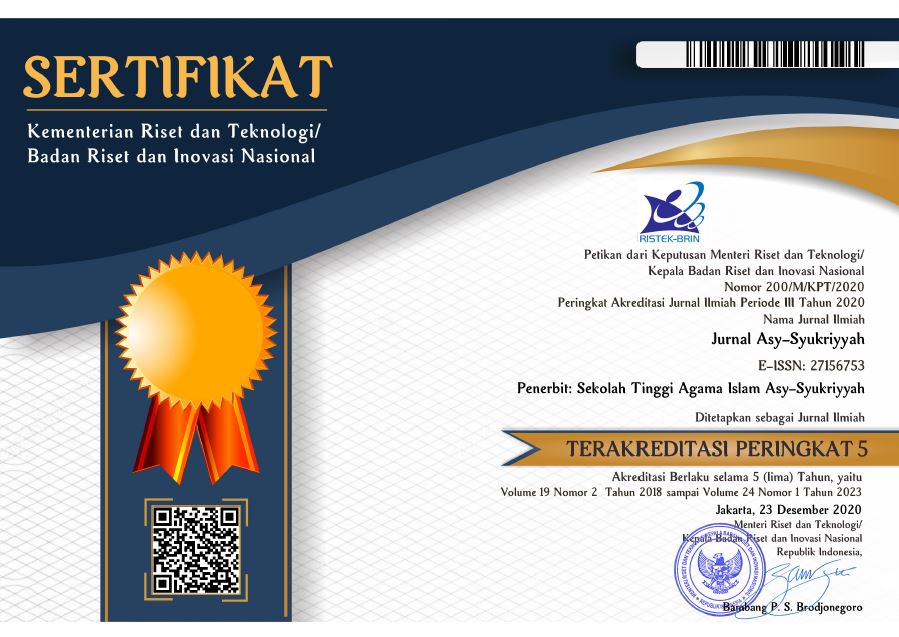Implementasi Qawaid Fiqhiyyah Dalam Ekonomi Dan Industri Keuangan Syariah
DOI:
https://doi.org/10.36769/asy.v19i2.34Keywords:
Islamic Principles of Jurisprudences, Muamalah, Islamic EconomicsAbstract
The existence of Islamic Principles of Jurisprudences (qawa'id fiqhiyyah) is to provide a more practical guide derived from the original text, namely al-Qur'an and al- Hadith to the community. With this, some theologians (ulama) can prepare life guidelines for Muslims in different spheres from time to time and place to place. As is known, Islam gives its people the opportunity through those who have the authority to carry out ijtihad in various ways guided by the Messenger of Allah, through ijma', qiyas, istihsan, istishab, istislah (masalihul-mursalah) and so on to look for truth that has not been explained in detail in the Qur'an and the Hadith of the Muhammad SAW. Likewise, in economic life, or in the treasury of the works of earlier fuqaha commonly called muamalah, the use of qawa'id fiqhiyyah becomes very important. "All forms of muamalah are basically changed (permissible) unless there is a argument that forbids it". This qaidah is the main qaidah in every halal of all forms of economic and financial transactions unless there is a reason for the sharia prohibition. There are at least five qa'idah-hakyyah known as al-Asasiyyatul-Khamsah which in its application ulama classify qawa'id into six different fields, namely mahdhah (special) worship, ahwal as-Syahshiyyah (personal and family matters), you 'amalah maaliyah (economic transactions), jinayah (criminality), siyasah (politics), and fiqh qadhaya (procedural law and justice). The purpose of this paper is to find out how the implementation or implementation of qawaid fiqhiyyah in the sharia economy and financial industry.















